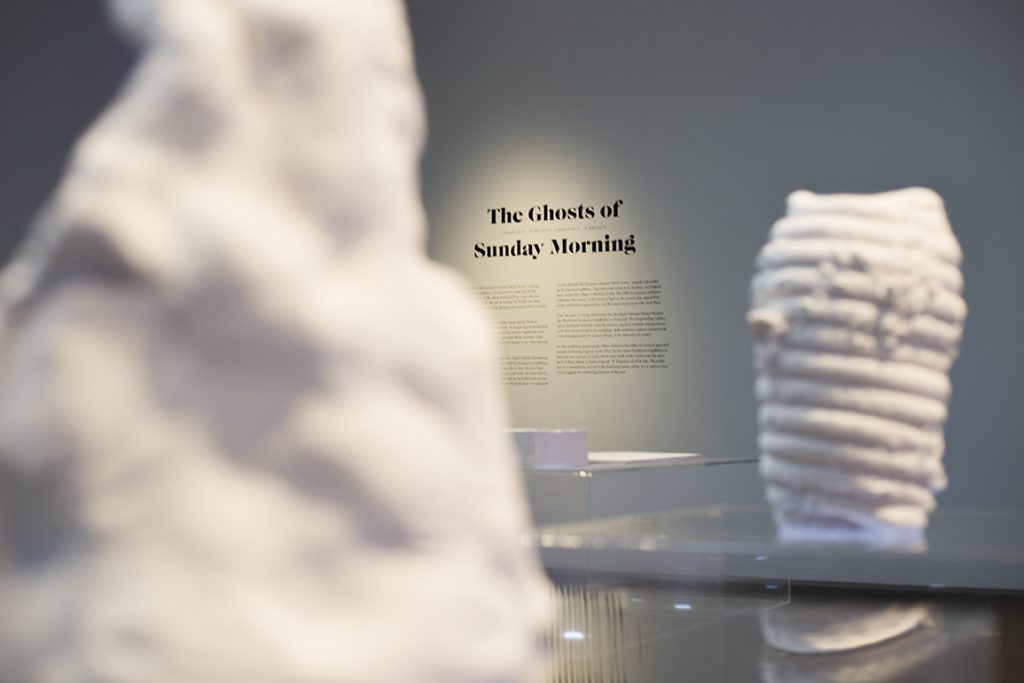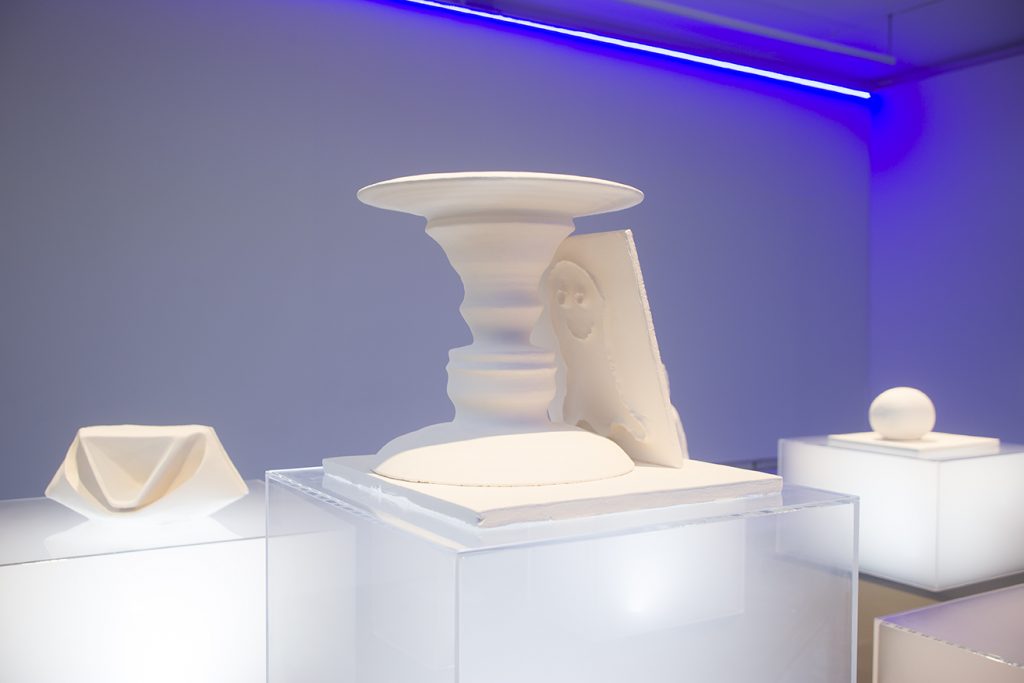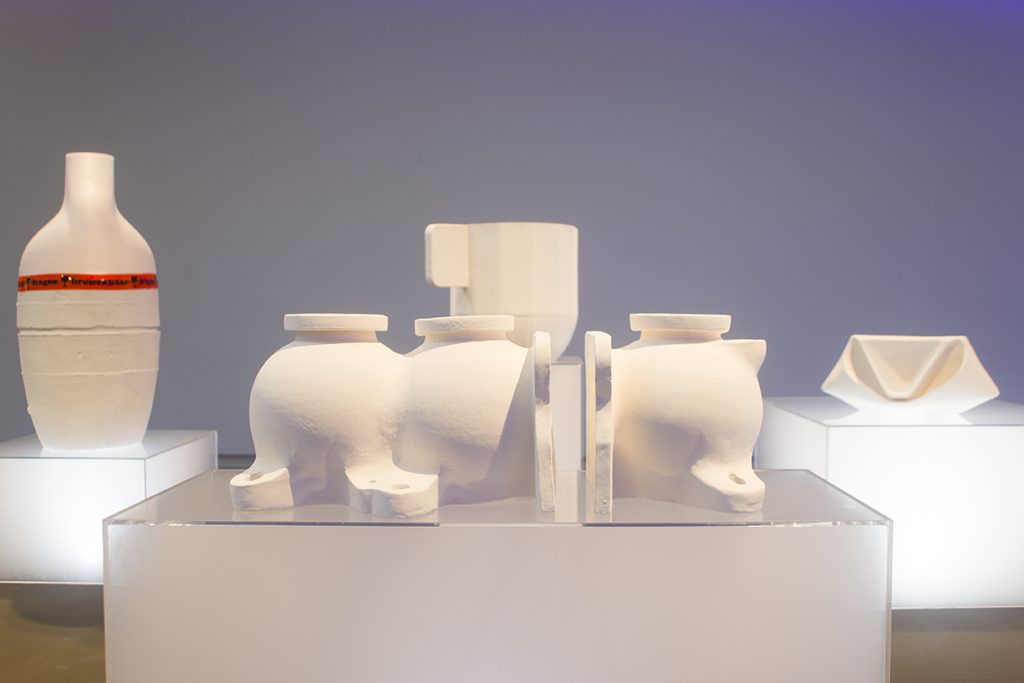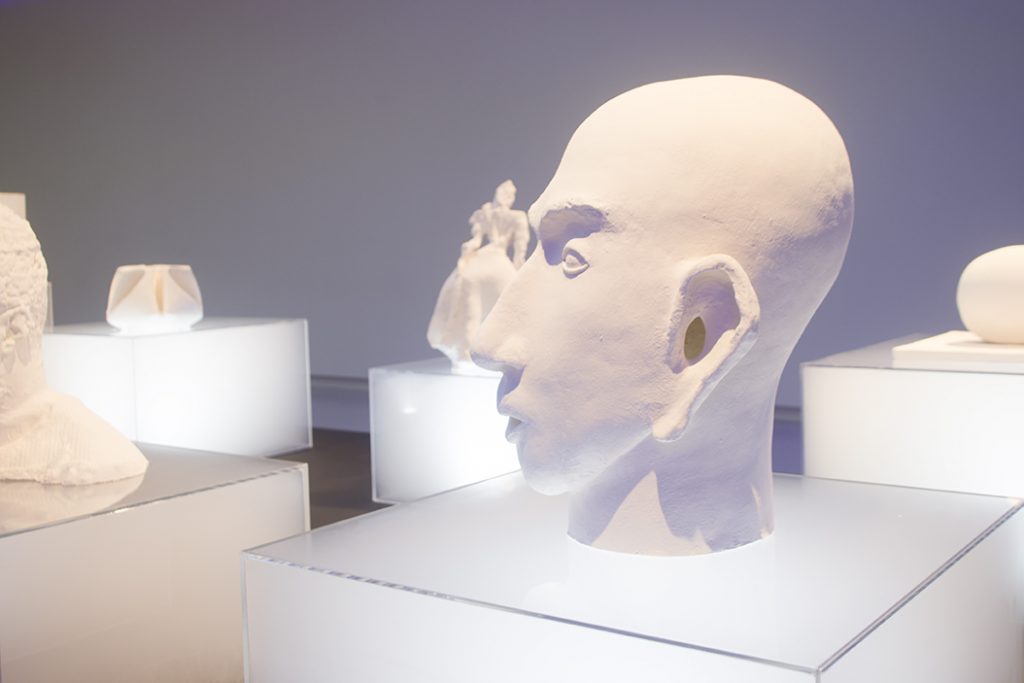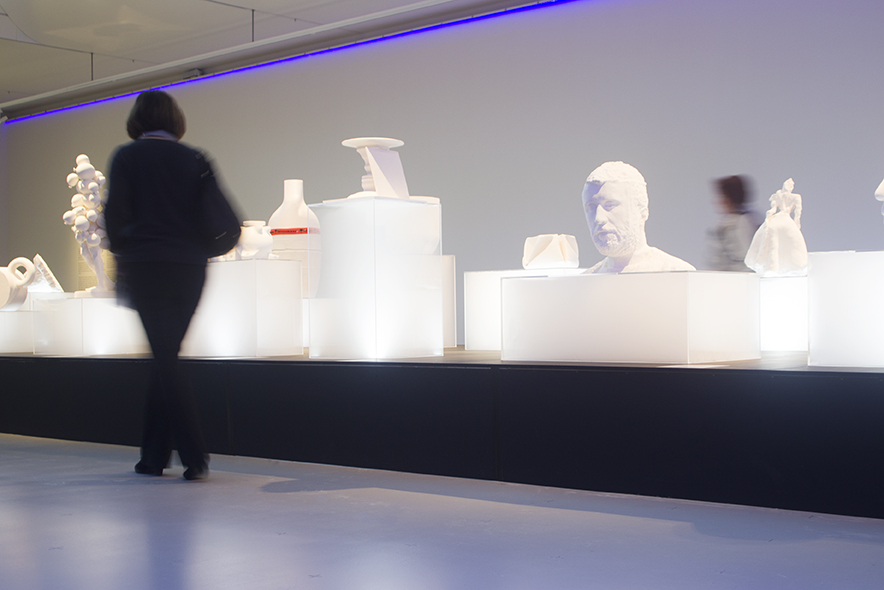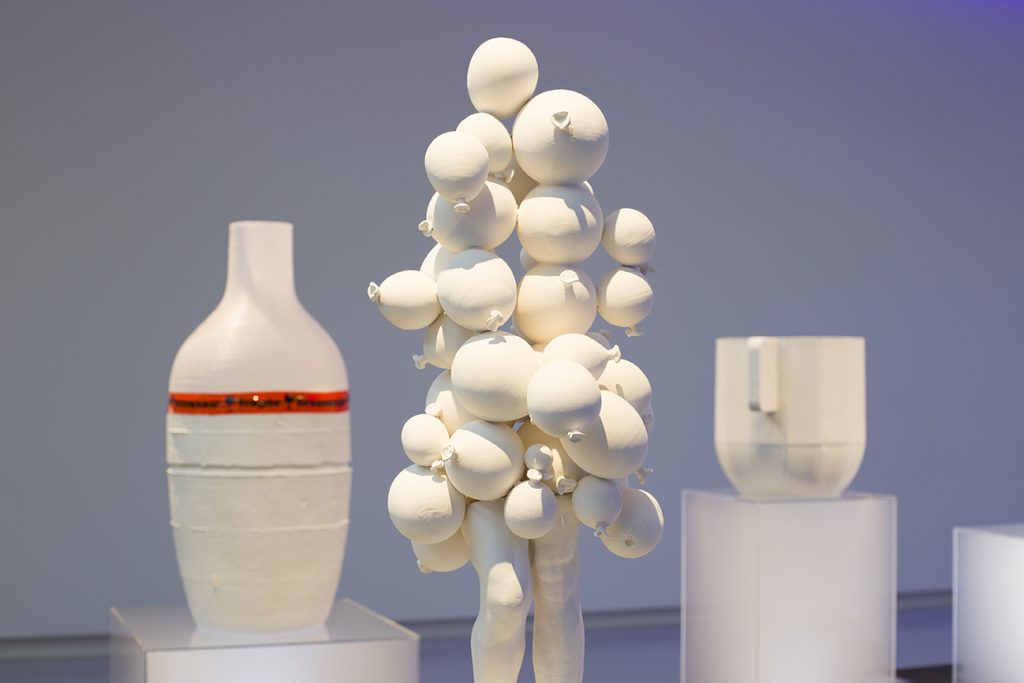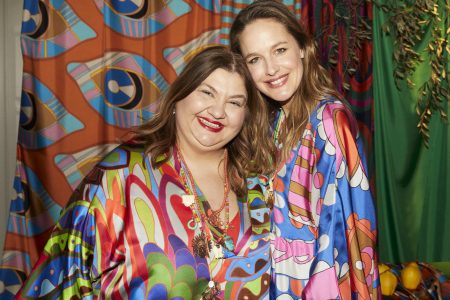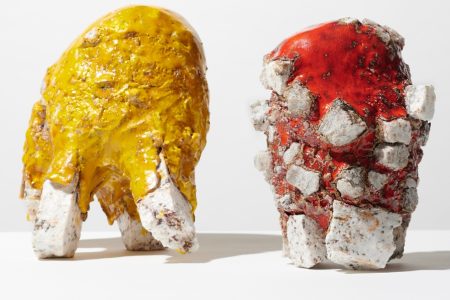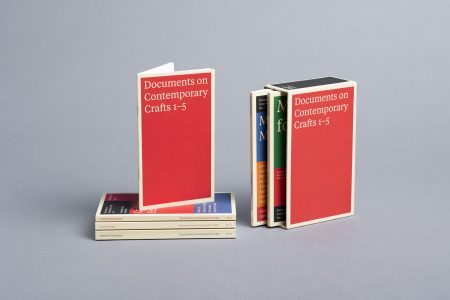
Exploring ‘The Ghosts of Sunday Morning’
Design Museum Den Bosch’s exhibition unearths European Ceramic Work Centre’s (Sundaymorning@ekwc) history as it engages with themes of transience, eternity, and the fine line between authenticity and reproduction.
Visitors have to walk up the brightly lit spiral staircase of the Design Museum in Den Bosch to get to the large, windowless and mysteriously dark room in which ‘The Ghosts of Sunday Morning’ is held. In the middle of the room, thirty pieces presented on perspex plateau’s are lit from below and above. As the perspex boxes slowly fill up with smoke, the visitor is also welcomed by an enigmatic soundscape consisting of the delicate tinkling sound of clay cooling down after it’s been in the kiln. Designed by Amsterdam-based studio Trapped in Suburbia, the exhibition’s moody lighting, perspex details and strangely uneasy soundscape create a mystical environment. In a small room attached to the main exhibition space, the history of sundaymorning@ekwc, from its humble beginnings to now, are presented with a timeline that goes around the space.
At the centre of the main room, visitors find the “ghosts” referred to in the title. These ghosts are not apparitions or haunted beings, but the name the exhibition designates to the pieces of unglazed white clay in front of the viewer. The medium itself was chosen because of the recognition that comes with it. The wall text describes the viewer on what it was like to work with clay as a child, and how every fired piece of ceramic preserves the trace of gestures used to make it — down to the fingerprints of its creator — and holds these characteristics till long after its maker has passed away. The term also works as the exhibition reaches back into the history of sundaymorning@ekwc, back to the original creators and artists who have worked in their spaces in the past fifty years, and manifests itself in the present. The overreaching theme amongst the thirty selected pieces is, according to curator Glenn Adamson, based on their thematic tensions between transience and eternity.
The uniformity of the objects, which are all made out of the same material and each weighs about 25 kg, introduces odd effects to the original pieces on which they’re based on. Here, small teacups become monumental, enormous sculptures become miniature versions of themselves, and intricate details are painstakingly recreated in a new medium. Another commonality between these objects is that they were created by the advisors of sundaymorning@ekwc — entering a grey area between authenticity and reproduction, the value of the original and its duplicative production as well as craftsmanship and art.
This give-and-take between the ghost and the essence of the original piece is further appropriated by only letting viewers view the original piece of work through often just one image alongside its pasty reproduction. In this way, the exhibition allows its ceramic phantoms to represent both the past and present, art and design, maker and artist to collide and overlap — as the viewer can only truly experience that what is in front of them.
The pieces in ‘Ghosts of Sunday Morning’ echo the feeling of exhibitions featuring findings of an archaeological dig; the objects appear as if they are taken out of their original timelines and contexts, and put on view especially for the visitor. They are examples of the in-house skillset and knowledge of sundaymorning@ekwc and the diverse cast of artists and designers that have walked their halls. All that is left to wonder after viewing this exhibition is how the European Ceramic Work Centre will continue now that it has wiped it’s slate clean; the centre has now “cleansed” themselves of the ghosts that have surrounded them and their past, and can now — without hesitation — look towards their future.
The ‘Ghosts of Sunday Morning’ is on display at the Design Museum Den Bosch until May 19th, 2019.
